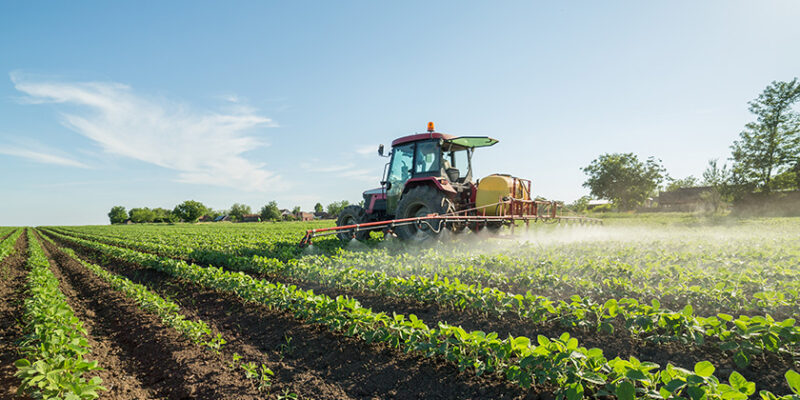At the end of 2023, the Home Secretary announced the largest shake-up to the UK’s work visa rules since the system was overhauled post-Brexit. The changes have been met with concern by the business community, including rural employers. On 13 February 2024, a number of Scottish food and drink industry partners published an open letter to the Home Secretary calling for a rethink of the proposed reforms.
What changes have been announced?
The Government’s “five point plan” to reduce legal migration to the UK is as follows:
- Under the Skilled Worker visa (the main work visa route in the UK) sponsored workers must be paid either (i) the “general minimum” salary, or (ii) the “going rate” for the specific role in question – whichever is higher. The general minimum annual salary has risen from £26,200 to £38,700; a rise of nearly 50%. The going rate salaries for specific roles have also risen, with the exception of roles in the Health and Social Care sector.
- Under previous rules, the “Shortage Occupation List” (SOL) applied to the Skilled Worker visa route and allowed Licenced Sponsors to potentially pay sponsored workers 20% less than the applicable going rate if their role appeared on this List. This concession has largely been removed, with the SOL being replaced by the Immigration Salary List (ISL) which is narrower in scope. The Migration Advisory Committee (MAC) has recently published its “rapid review” of the ISL and this informed the Government’s decision making on the ISL. At present, a limited number of traditionally rural roles are listed in the ISL.
- Sponsored Workers in the Health and Social Care sector are no longer permitted to bring dependant family members to the UK. As things currently stand, Skilled Workers can bring Dependants to the UK as part of their application and this will continue to be the case for workers not in Health and Social Care roles.
- The Graduate visa route – which allows students to remain in the UK and work for 2 or 3 years post-study without the need for sponsorship by a Licenced Sponsor – is to be reviewed by the MAC. This is intended to “prevent abuse” of the system in future.
- The minimum income threshold for family visas will increase from £18,000 to £37,800 by early 2025, with the first incremental increase to £29,000 having come into force in April 2024.
Further to these changes, the Home Office has also implemented a rise in the value of civil penalties for employing an illegal worker, with maximum penalties increasing from £20,000 to £60,000 per illegal worker. The Immigration Health Surcharge (IHS) – the fee payable by most migrant workers for access to NHS services – has also recently increased from £624 to £1,035 per year.
When were these changes implemented?
Most of the changes have been implemented across March and April 2024, with the rises to the IHS and illegal worker penalties implemented at the beginning of the year.
What are the thoughts of food and drink industry partners?
In short, industry partners believe that the Government’s approach ignores the importance of migrant workers to the rural economy.
Partners consider that raising minimum salary thresholds at this time risks destabilisation of the entire supply chain, from primary production right through to hospitality businesses. They note that the revised minimum Skilled Worker salary of £38,700 is higher than the salary being offered for many of the vacant roles in the industry. According to a Scotland Food and Drink survey conducted last year, 92% of respondents were already unable to attract sufficient numbers of suitable employees and – in their view – the planned changes will only exacerbate these issues.
It is thought that operations in the industry will be greatly affected without overseas workers and there is growing concern about the message that these changes send not only to overseas workers looking to work in the UK, but also overseas workers already here. Scotland Food and Drink has noted that it remains committed to engaging with lawmakers to advocate for a “fair and sustainable” immigration system.
How will this impact rural businesses?
Ultimately, these changes may make it more difficult for Licenced Sponsors to sponsor overseas workers – particularly in the Skilled Worker route – and will generally reduce the talent pool for Scottish businesses.
The minimum salary changes will likely have a significant effect on rural businesses, where salaries may be at the lower end of the scale. A key reason for this is that the UK Immigration Rules are (subject to a small number of exceptions) not regionalised, so these changes apply across the board. The changes are therefore likely to have a greater adverse impact on businesses in Scotland’s rural areas where salaries tend to be significantly lower than in major cities. Rural businesses often face the prospect of having to make a significant deviation from their pay scales to facilitate sponsorship, which has the potential to create its own problems from an HR perspective.
What should businesses do now?
Businesses that employ a significant proportion of foreign workers should review ongoing recruitment and retention strategies. The Skilled Worker route is not the only means by which overseas workers can be hired. Those with Indefinite Leave to Remain or status under the EU Settlement Scheme have the right to work in the UK, as do a number of other UK visa holders. Farmers may also be able to benefit from the temporary Seasonal Worker visa, which allows temporary work in agriculture and/or poultry farming. In a welcome move, the Government has recently announced that the Seasonal Worker visa scheme is to be extended for a further 5 years.
Employers may wish to review salary levels and other non-financial benefits that are provided, although there will inevitably be limitations on what can be achieved in the current financial climate.
If you are concerned about the effect of these newly implemented immigration changes on your business, then please get in contact with our Employment Law team to discuss further.


